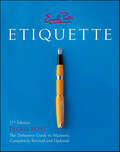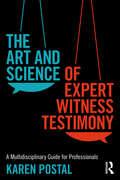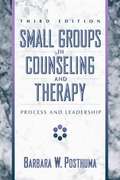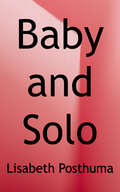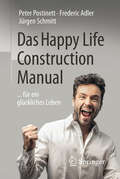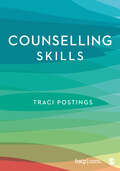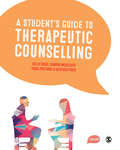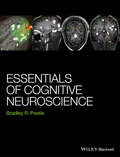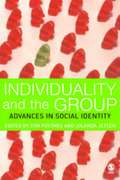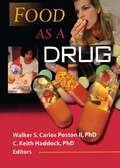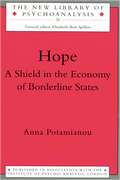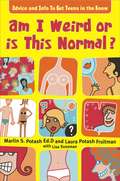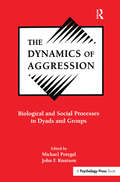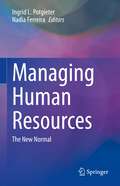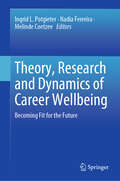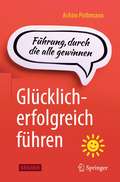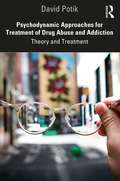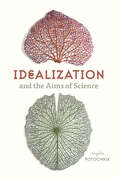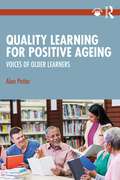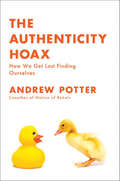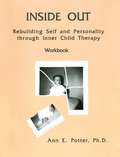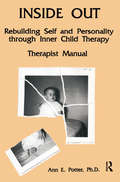- Table View
- List View
Emily Post's Etiquette: The Definitive Guide to Manners
by Peggy PostFor the first time in its history, this American classic has been completely rewritten. Peggy Post gives us etiquette for today's times. Read by millions since the first edition was published in 1922, Emily Post—the most trusted name in etiquette—has always been there to help people navigate every conceivable social situation. The tradition continues with this 100 percent revised and updated edition, which covers the formal, the traditional, the contemporary, and the casual.Based on thousands of reader questions, surveys conducted on the Emily Post Institute and Good Housekeeping Web sites, and Peggy's travels across the country, the book shows how to handle the new, difficult, unusual, and everyday situations we all encounter. The definition of etiquette—a code of behavior based on thoughtfulness—has not changed since Emily's day. The etiquette guidelines we use to smooth the way change all the time.This new edition resolves hundreds of our key etiquette concerns: dealing with rudeness, netiquette, noxious neighbors, road rage, family harmony, on-line dating, cell phone courtesy, raising respectful children and teens, and travel etiquette in the post-9/11 world...to name just a few.Emily Post's Etiquette, 17th Edition also remains the definitive source for timeless advice on entertaining, social protocol, table manners, guidelines for religious ceremonies, expressing condolences, introductions, how to be a good houseguest and host, invitations, correspondence, planning a wedding, giving a toast, and sportsmanship.Peggy Post's advice gives us the confidence of knowing we're doing the right thing so we can relax and enjoy the moment and move more easily through our world. Emily Post's Etiquette, 17th Edition will be the resource of choice for years to come.
The Art and Science of Expert Witness Testimony: A Multidisciplinary Guide for Professionals
by Karen PostalFeaturing in-depth interviews of attorneys, judges, and seasoned forensic experts from multiple disciplines including psychology, medicine, economics, history, and neuropsychology, The Art and Science of Expert Witness Testimony highlights and offers bridges for the areas where the needs and expectations of the courtroom collide with experts’ communication habits developed over years of academic and professional training. Rather than seeing testimony as a one-way download from expert to jurors, The Art and Science of Expert Witness Testimony focuses on the direct, dynamic, unique communication relationship that develops as each juror’s lived experience interacts with the words of experts on the stand. This book expands the academic tradition of "methods-centered credibility" to also include "person-centered credibility," where warmth, confidence, and relentless attention to detail build trust with jurors. Seasoned forensic experts share what they actually say on the stand: their best strategies and techniques for disrupting traditional academic communication and creating access to science and professional opinions with vivid, clear language and strong visuals. The difficult but necessary emotional work of the courtroom is addressed with specific techniques to regulate emotions in order to maintain person-centered credibility and keep the needs of jurors front and center through cross-examination. This innovative compilation of research is essential reading for professionals and practitioners, such as physicians, engineers, accountants, and scientists, that may find themselves experts in a courtroom. The Art and Science of Expert Witness Testimony provides a unique experience for readers, akin to being personally mentored by over eighty-five attorneys, judges, and seasoned experts as they share their observations, insights, and strategies—not to "win" as a defense, prosecution, or plaintiff expert, but to be productive in helping jurors and other triers of fact do their difficult intellectual job in deciding a case.
Small Groups in Counseling and Therapy: Process and Leadership
by Barbara W. PosthumaWhat are the characteristics of a cohesive group? What are the attributes of a good leader? What are the hidden agendas that govern certain group dynamics? Everyone needs a basic introduction into group dynamics in order to interact with the people in their personal and professional community. Small Groups is a practical hands-on approach to group dynamics. People in the various helping professions, as well as other professionals and lay citizens, will find in this book the appropriate conceptual knowledge and practical skills needed for effective small group leadership.<p> In addition to considering the theories of leadership and group process as well as the attributes and roles of leaders, the author applies the information in a practical step-by-step manner. He also introduces new programs on assertiveness and awareness. Topics include: group development, group dimensions, goals and norms, leadership attributes and techniques, ethics and multiculturalism, and self-help groups.
Baby and Solo
by Lisabeth PosthumaJoel's new job at the video store is just what the therapist ordered. But what happens if the first true friend he's made in years finds out about What Was Wrong With Him? <p><p>Seventeen-year-old Joel Teague has a new prescription from his therapist--a part-time job--the first step toward the elusive Normal life he's been so desperate to live ever since The Bad Thing happened. Lucky for Joel, ROYO Video is hiring. It's the perfect fresh start--Joel even gets a new name. Dubbed "Solo" after his favorite Star Wars character, Joel works his way up the not-so-corporate ladder without anyone suspecting What Was Wrong With Him. That is, until he befriends Nicole "Baby" Palmer, a smart-mouthed coworker with a chip on her shoulder about . . . well, everything, and the two quickly develop the kind of friendship movie montages are made of. However, when Joel's past inevitably catches up with him, he's forced to choose between preserving his new blank slate persona and coming clean--and either way, he risks losing the first real friend he's ever had. <p><p>Set in a pop-culture-rich 1990s, this remarkable story tackles challenging and timely themes with huge doses of wit, power, and heart.
Das Happy Life Construction Manual: ... für ein glückliches Leben
by Peter Postinett Frederic Adler Jürgen SchmittDieses Sachbuch basiert auf 50 Jahren praktischer Erfahrung im Projekt- und Change Management. Durch wertvolle Analysen und Impulse unterstutzt es Sie bei der Definition und Erreichung von Lebenszielen. Unser Gehirn ist eine Hochleistungs-Traummaschine, die unermudlich Wirklichkeiten konstruiert. Diesen Vorgang kann man lernen bewusst zu lenken. Dafur mussen wir allerdings zuerst definieren, wohin die Reise gehen soll und uns daruber klar werden, dass die blosse Bestellung beim Universum nicht ausreicht. Wir mussen hier noch eine Zutat dazugeben: Aktion! Lernen Sie mit dem Konzept des focused thinking Ihr Denken auf das auszurichten, was Sie weiterbringt. Zahlreiche Ubungen erleichtern die Anwendung der Informationen. "
Counselling Skills
by Traci PostingsThis counselling skills book will equip you with the necessary knowledge, skills and qualities to work with people in a range of different roles and settings. It defines counselling skills and introduces key skills including: listening and responding skills, empathy and different models, tools and techniques. Further chapters explore the importance of skills practice and self-awareness; ethics, boundaries and confidentiality; working remotely; working with difference and diversity, and different professional roles. Throughout, case studies show you how these skills can make a difference in practice, while exercises, including a student journal feature, help you reflect on your own attitudes to enhance your reflective practice. This book is an accessible guide to the BACP counselling skills competence framework for trainee counsellors and those using counselling skills as part of another professional role.
Counselling Skills
by Traci PostingsThis counselling skills book will equip you with the necessary knowledge, skills and qualities to work with people in a range of different roles and settings. It defines counselling skills and introduces key skills including: listening and responding skills, empathy and different models, tools and techniques. Further chapters explore the importance of skills practice and self-awareness; ethics, boundaries and confidentiality; working remotely; working with difference and diversity, and different professional roles. Throughout, case studies show you how these skills can make a difference in practice, while exercises, including a student journal feature, help you reflect on your own attitudes to enhance your reflective practice. This book is an accessible guide to the BACP counselling skills competence framework for trainee counsellors and those using counselling skills as part of another professional role.
A Student's Guide to Therapeutic Counselling
by Traci Postings Heather Price Kelly Budd Sandra McKeeverCo-published with the CPCAB, this highly practical book is a comprehensive training guide based around 7 core processes of practitioner development. This will appeal to learners on diploma courses at Level 4 and above. It offers a firm foundation of knowledge and skills, looks at practice issues, helps with study, and also answers the most common questions students have when training.
A Student's Guide to Therapeutic Counselling
by Traci Postings Heather Price Kelly Budd Sandra McKeeverCo-published with the CPCAB, this highly practical book is a comprehensive training guide based around 7 core processes of practitioner development. This will appeal to learners on diploma courses at Level 4 and above. It offers a firm foundation of knowledge and skills, looks at practice issues, helps with study, and also answers the most common questions students have when training.
Essentials of Cognitive Neuroscience
by Bradley R. PostleEssentials of Cognitive Neuroscience guides undergraduate and early-stage graduate students with no previous neuroscientific background through the fundamental principles and themes in a concise, organized, and engaging manner. Provides students with the foundation to understand primary literature, recognize current controversies in the field, and engage in discussions on cognitive neuroscience and its future Introduces important experimental methods and techniques integrated throughout the text Assists student comprehension through four-color images and thorough pedagogical resources throughout the text Accompanied by a robust website with multiple choice questions, experiment vidoes, fMRI data, web links and video narratives from a global group of leading scientists for students. For Instructors there are sample syllabi and exam questions
Individuality and the Group: Advances in Social Identity
by Tom Postmes Jolanda JettenSocial identity research has transformed psychology and the social sciences. Developed around intergroup relations, perspectives on social identity have now been applied fruitfully to a diverse array of topics and domains, including health, organizations and management, culture, politics and group dynamics. In many of these new areas, the focus has been on groups, but also very much on the autonomous individual. This has been an exciting development, and has prompted a rethinking of the relationship between personal identity and social identity - the issue of individuality in the group. This book brings together an international selection of prominent researchers at the forefront of this development. They reflect on this issue of individuality in the group, and on how thinking about social identity has changed. Together, these chapters chart a key development in the field: how social identity perspectives inform understanding of cohesion, unity and collective action, but also how they help us understand individuality, agency, autonomy, disagreement, and diversity within groups. This text is valuable to advanced undergraduate and postgraduate students studying social psychology where intergroup relations and group processes are a central component. Given its wider reach, however, it will also be of interest to those in cognate disciplines where social identity perspectives have application potential.
Food as a Drug
by Walker S Poston C Keith HaddockFood as a Drug provides psychologists, psychiatrists, and counselors with a unique discussion about possible addictive qualities of some foods to assist clients who are struggling with obesity or eating disorders. Examining the pros and cons of treating eating disorders with an addictions model, this book also explores the tremendous societal and personal costs of eating disorders and obesity, such as increased risk of heart disease, health care costs, and death. Thorough and concise, Food as a Drug will assist you in providing better services to clients with these types of dilemmas.Comprehensive and current, this reference provides information on relevant topics, such as diet and behavior relationships; cross-cultural perspectives on the use of foods for medicinal purposes; regulatory perspectives on drugs, foods, and nutritional supplements; and whether foods have pharmacological properties. Food as a Drug address several important topics, such as: focusing on sugar to determine the effects of food additives on children's behavioral disorders, such as attention deficit disorder and hyperactivity addressing the role that your diet plays on serotonin levels, carbohydrate craving, and depression examining the phenomenological, psychological, and physiological correlations between overeating and how foods may be used to alleviate negative moods discussing the pros and cons of treating obesity and eating disorders with addiction modelsWritten by experts in the field, this book offers you in-depth studies and information about the nature of food as a potentially addictive substance. Food as a Drug will help you understand these difficult-to-treat conditions and offer clients better and more effective services.
Hope: A Shield in the Economy of Borderline States (The New Library of Psychoanalysis)
by Anna PotamianouIn the well known myth of Pandora, hope was the last and most need gift at the bottom of a box of myriad misfortunes let loose on an unsuspecting world. For most human beings hope is a positive benefit. Anna Potamianou shows how in the 'borderline' patient hope can become a perverted and omnipotent means of denying reality. Indeed, in such individuals any state of mind or feeling can take on the status of an object, which is then used as a barrier against their fear of change. The psychic economy and dynamics of borderline states are not yet well understood and this book makes an important contribution to the clinical debate.
Am I Weird Or Is This Normal?
by Marlin S. Potash Laura Potash Fruitman Lisa SussmanAm I Weird or Is This Normal? is for every girl who has ever wondered whether all the stuff that's happening to her body, feelings, and relationships is normal -- and who's seeking the 411 that will get her in step with life. Am I Weird or Is This Normal? is like being a part of a private conversation where you get answers and advice about all the stuff that's on your mind. Everyone feels strange, embarrassed, and just plain weird at times. It's just that no one likes to talk about it. Except for Dr. Marlin, a psychologist specializing in teens, and Laura, her teenage daughter who has been in the trenches dealing with boys, school, her parents' divorce, and friends. This dynamic duo give the lowdown on everything so that you can handle all the sticky situations that crop up on the way to womanhood. By giving you a look into other girls' experiences, Am I Weird or Is This Normal? will walk you through the options you have when you're: Uncertain about dating and sex Faced with alcohol and other drugs Feeling jealous Fighting with your friends and family Smack in the middle of life's other awkward moments With uplifting mantras you can pull out whenever you need them, Dr. Marlin and Laura help you -- and those who love you -- get through life by seeing that weird is normal.
The Dynamics of Aggression: Biological and Social Processes in Dyads and Groups
by Michael Potegal John F. KnutsonAggression usually involves a sequence of behaviors, reflecting escalations and de-escalations in the form or intensity of the actions taken, which play out over time. This book provides a context in which social and biological research on the aggressive behaviors of human and non-human subjects, interacting in dyads or groups, can be compared and integrated. Implicit in this juxtaposition is the major question of whether general principles governing the dynamics of aggression within and between episodes may be discerned. Aggressive behavior is described at different levels of analysis in humans and a number of other animal species. Three basic views of aggression dynamics become apparent: * The economic interpretation: Aggression will be escalated when it pays one of the combatants to do so or, more generally, when the potential benefits outweigh the risks. Decisions to escalate or de-escalate are part of a calculated "strategy", in one or another sense. This interpretation is formalized within game theoretic models as applied to animal conflicts and to international conflicts, within the chapters of this text. * The psychological process interpretation: Emphasis is placed on psychological/physiological processes within the individual. The chapters stress the importance of acute emotional states of anger and aggressive arousal and argue the role of peripheral sympathetic activation, while proposing a central neural mechanism. Children escalating their tantrums, adult humans and animals of other species intensifying their interpersonal conflicts, national leaders going to a war footing all appear to suffer a narrowing of attention and progressive failure of cognitive function under the intensifying stress of conflict. Perhaps these changes in attention, sensory and cognitive functions, and risk taking reflect a "commitment to aggression" which is necessary for organisms to engage in potentially dangerous and painful encounters. * The emergent process interpretation: Escalation emerges in a spontaneous and dynamic way as the actions of one participant elicit reactions from the other(s).
Managing Human Resources: The New Normal
by Ingrid L. Potgieter Nadia FerreiraThis book volume crafts an exciting, original account on the changes and requirements on managing human resources within the context of the new normal. Chapters in this book report on current research on the key constructs and processes underlying the management of human resources, both on an organisational strategic level as well as an individual employee level. Chapters compare current research trends in terms of future potential directions for the management of human resources within the context of the new normal. The book also critically evaluates the relevance, applicability and utility of the research findings and theoretical premises in various classical, current and potential emerging issues for research and practice in the smart digital technological world of work for human resource management. This volume approaches the concept of managing human resources with the new normal working context from a number of different angles. The authors have categorized them as conceptualizing human resource management in the context of the new normal (Part I), the critical issues in understanding the dynamics of strategic human resources management (Part II), critical issues in understanding the impact of the new normal on the psychology of employees (Part III), and the impact of the new normal on individuals with special needs (Part IV). The book ends in Part V of the volume, with an integrated reflection and conclusion on emerging issues for research and practice. The primary audience for this book volume is advanced undergraduate and postgraduate students in human resource management, as well as scholars in both academic and new normal working contexts. Human resource management practitioners will also have an interest in this book volume.
Theory, Research and Dynamics of Career Wellbeing: Becoming Fit for the Future
by Ingrid L. Potgieter Nadia Ferreira Melinde CoetzeeThis volume offers a new conceptualization of career wellbeing by viewing the construct as an individual’s long-term contentment with their career outcomes, career achievements, career changes and their sustainable employability amidst the complexities of the contemporary and emerging future digital-driven work environment. In support of this view of career wellbeing, the volume constructs theoretical frameworks for “future-fit” career wellbeing in the digital-driven work–life context. The chapters juxtaposition current research trends in terms of future potential directions for research on career wellbeing in Industry 4.0. The volume also critically evaluates the relevance, applicability and utility of the research findings and theoretical premises in various current versus potential Industry 4.0 settings for individuals across the life-span. It offers valuable suggestions for practice and interventions.
Glücklich-erfolgreich führen: Führung, durch die alle gewinnen
by Achim PothmannGib deinen Mitarbeitern Tätigkeiten, die sie gerne tun und verhilf ihnen zu Jobglück – und sie werden dich glücklich und erfolgreich machen. Dieser Ratgeber zeigt auf, wie die Steigerung des Jobglücks anderer der eigenen Karriere dienen kann. Die dargestellten Wirkmechanismen basieren auf aktuellen wissenschaftlichen Erkenntnissen aus der Neuropsychologie, Neurobiologie, Positiven Psychologie und angrenzenden Disziplinen, sowie auf zahlreiche lebenspraktischen Fallbeispielen. Sehen Sie selbst, wie sich Erfolg einstellt, wenn eine Führungskraft das Jobglück ihrer Mitarbeiter tatsächlich in den Vordergrund ihrer Betrachtung stellt. Erfahren Sie, welchen fundamentalen Einfluss die Zufriedenheit der Mitarbeiter auf den Erfolg hat und wie sie in Zukunft ein Generalschlüssel für Erfolg sein kann. Erkennen Sie, warum die Haltung der Führungskraft der essenzielle Schlüssel zum Jobglück des Mitarbeiters ist. Dazu stellt der Ratgeber, der auch als Haltungsentwickler bezeichnet werden kann, das Bild von Fred, einem exemplarischen Mitarbeiter vor, mit dessen Hilfe der Leser versteht, dass das Jobglück seines Mitarbeiters eine höchst individuelle und besonders sensibel zu behandelnde Variable ist. Er verdeutlicht, welche Faktoren positiv oder auch störend auf das Mitarbeiterglück einwirken und wie das Führungsverhalten angepasst werden kann. Die anschaulich präsentierten, lebensnahen Beispiele aus dem Arbeitsalltag mit glücklich-erfolgreicher Führung ranken sich um sämtliche Lebensphasen eines Mitarbeiters im Unternehmen, vom Bewerbungsgespräch bis zur Beendigung der Zusammenarbeit. Zielgruppen: Alle an Führung und Jobglück Interessierten, sowie alle Führungsverantwortliche. Zum Autor: Dipl. Kfm. Dr. phil. Achim Pothmann ist Speaker und Berater und begeistert seine Zuhörer und Kunden für eine neue Art der (Zusammen-)Arbeit.
Formal Approaches in Categorization
by Emmanuel M. Pothos Andy J. WillsThe process of constructing concepts underpins our capacity to encode information in an efficient and competent manner and also, ultimately, our ability to think in terms of abstract ideas such as justice, love and happiness. But what are the mechanisms which correspond to psychological categorization processes? This book unites many prominent approaches in modelling categorization. Each chapter focuses on a particular formal approach to categorization, presented by the proponent(s) or advocate(s) of that approach, and the authors consider the relation of this approach to other models and the ultimate objectives in their research programmes. The volume evaluates progress that has been made in the field and potential future developments. This is an essential companion to any scientist interested in the formal description of categorization and, more generally, in formal approaches to cognition. It will be the definitive guide to formal approaches in categorization research for years to come.
Psychodynamic Approaches for Treatment of Drug Abuse and Addiction: Theory and Treatment
by David PotikThis book provides clinicians and students with insights on the use of psychodynamic therapy to treat drug abuse and addiction, combining theory with clinical case material. The perspectives of analysts such as Abraham, Rado, Zimmel, Tibout, Wurmser, Khanzian, Krystal and McDougall are reviewed alongside original and more recent conceptualizations of drug addiction and recovery based on Kleinian, Winnicottian and Kohutian ideas. The case material deals with clinical phenomena that characterize working with this complex population, such as intense projective identification, countertransference difficulties and relapses. The theoretical analysis covers a range of concepts, such as John Steiner's psychic shelters and Betty Joseph's near-death-addiction, which are yet to be fully explored in the context of addiction. Prevalent topics in the addiction field, such as the reward system, the cycle of change and the 12-step program, are also discussed in relation to psychodynamic theory and practice. Written by an experienced therapist, Psychodynamic Approaches for Treatment of Drug Abuse and Addiction is useful reading for anyone looking to understand how psychodynamic thought is applicable in the treatment of drug abuse and addiction. It may also be of some relevance to those working on treating alcohol use disorders and behavioral addictions.
Idealization and the Aims of Science
by Angela PotochnikScience is the study of our world, as it is in its messy reality. Nonetheless, science requires idealization to function—if we are to attempt to understand the world, we have to find ways to reduce its complexity. Idealization and the Aims of Science shows just how crucial idealization is to science and why it matters. Beginning with the acknowledgment of our status as limited human agents trying to make sense of an exceedingly complex world, Angela Potochnik moves on to explain how science aims to depict and make use of causal patterns—a project that makes essential use of idealization. She offers case studies from a number of branches of science to demonstrate the ubiquity of idealization, shows how causal patterns are used to develop scientific explanations, and describes how the necessarily imperfect connection between science and truth leads to researchers’ values influencing their findings. The resulting book is a tour de force, a synthesis of the study of idealization that also offers countless new insights and avenues for future exploration.
Quality Learning for Positive Ageing: Voices of Older Learners
by Alan PotterQuality Learning for Positive Ageing explores the views of older adult learners to understand the factors that contribute to ‘quality’ in later-life learning and how these relate to wellbeing, positive ageing, and gaining protection against cognitive decline.Through capturing and considering the viewpoints of learners, facilitators and learning organisations, the author outlines the specific characteristics of quality that they associate with informal learning and how it can be enhanced through the adoption of simple strategies. Key topics covered include the implications of an increasing ageing population and barriers to older people learning as well as the cognitive, mental wellbeing, health, and social benefits of learning in later life. Illustrated throughout with vignettes of real later-life learners, this thought-provoking text unpicks how learners can maximise the benefits of learning in later life for themselves, how tutors can create learning opportunities that embody the characteristics of quality for them, and how providers can offer an environment that simply allows quality learning to flourish.This accessible and comprehensive text will be of great interest to researchers of gerontology and ageing, educational gerontology, adult education, and lifelong learning as well as those engaged in dementia research.
The Authenticity Hoax: How We Get Lost Finding Ourselves
by Andrew Potter“A totally real, genuine, authentic book about why you shouldn’t believe any of those words. And it’s genuinely good.” — Gregg Easterbrook, author of Sonic BoomExploring a number of trends in our popular culture—from Sarah Palin to Antiques Roadshow, organic food to the indignation over James Frey’s memoir—Andrew Potter follows his successful Nation of Rebels with a new book that argues that our pursuit of the authentic is fraught with irony and self-defeat. Readers of The Paradox of Choice or Bowling Alone will find many enlightening insights in The Authenticity Hoax, which is, in the words of Tom de Zengotita (Mediated), “the kind of criticism that changes minds.”
Inside Out: Rebuilding Self And Personality Through Inner Child Therapy
by Ann E. PotterFirst published in 1994. Routledge is an imprint of Taylor & Francis, an informa company.
Inside Out: Rebuilding Self And Personality Through Inner Child Therapy
by Ann E. PotterFirst published in 1994. Routledge is an imprint of Taylor & Francis, an informa company.
